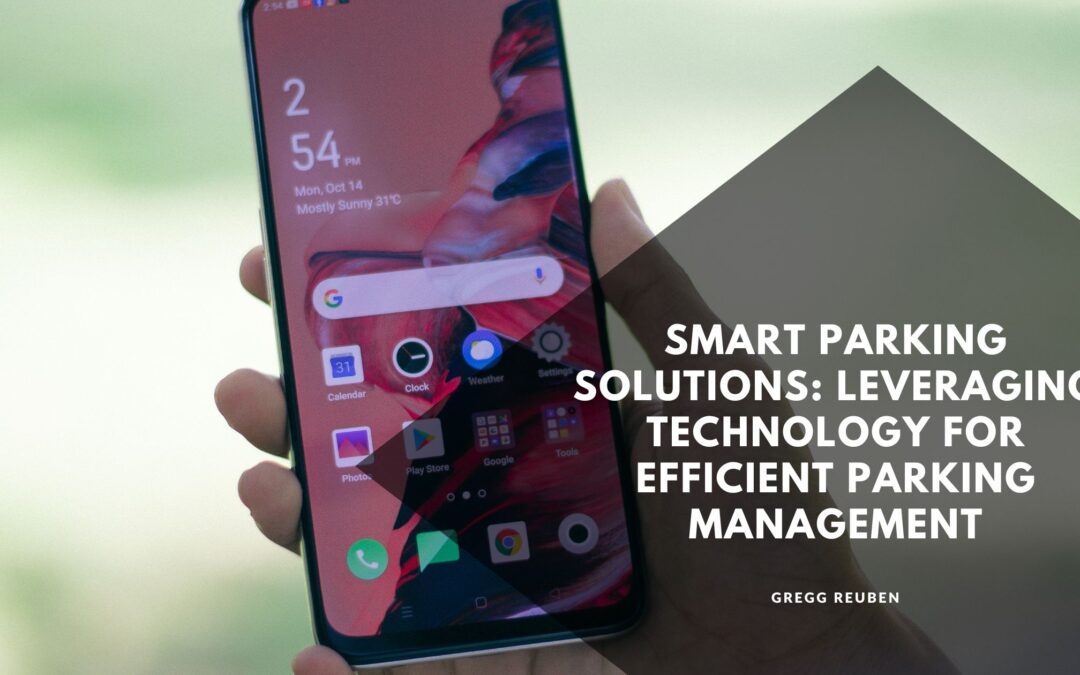In the fast-paced urban environments of today, parking management has become a significant challenge. Finding parking in a crowded city can be frustrating and time-consuming, leading to traffic congestion and decreased urban mobility. Fortunately, technology is offering innovative solutions to address these issues. Smart parking solutions powered by technology are revolutionizing how we manage and access parking.
The Challenges of Traditional Parking Systems
Before delving into the world of smart parking solutions, let’s consider the challenges that traditional parking systems face:
- Traffic Congestion: Inefficient parking systems often result in drivers circling for available spots, increasing traffic congestion and emissions.
- Wasted Time and Fuel: Finding a parking space can take time and effort. Drivers waste precious time and fuel in the process.
- High Operating Costs: Traditional parking facilities require maintenance, security, and personnel, leading to increased operational costs often passed on to users.
- Limited Space: Many urban areas have limited parking spaces, which are quickly occupied, leaving drivers with no option but to park illegally.
Smart Parking Solutions and Their Benefits
Smart parking solutions are a result of integrating technology into parking management, offering numerous benefits to both cities and drivers:
- Real-Time Parking Availability: Smart parking systems use sensors and cameras to monitor real-time parking spots. Drivers can access this data via mobile apps or digital signs, quickly guiding them to available parking spaces.
- Reduced Traffic Congestion: By guiding drivers directly to open spots, smart parking solutions ease traffic congestion and emissions, making cities more sustainable.
- Convenience: With mobile apps and digital payments, drivers can pay for parking, extend their time remotely, and receive reminders about their parking sessions, enhancing convenience.
- Cost Efficiency: These systems can reduce operational costs as they require fewer staff for manual management and maintenance.
- Improved Revenue Collection: Smart parking solutions help cities and parking facility operators maximize revenue by reducing instances of unpaid parking and increasing efficiency in fee collection.
- Parking Space Optimization: Data collected by these systems can help cities optimize their parking space usage, including adjusting pricing during peak hours or directing drivers to underutilized parking areas.
- Enhanced Security: Smart parking systems often include security features like surveillance cameras and emergency response buttons, making parking areas safer for users.
Examples of Smart Parking Solutions
- Sensor-Based Systems: These systems use sensors embedded in the road or attached to light poles to detect the presence of vehicles. Real-time data on available parking spots is transmitted to drivers through mobile apps.
- License Plate Recognition: Cameras capture license plate information, allowing for automated entry and exit, and eliminating the need for physical tickets or access cards.
- Mobile Payment and Reservations: Users can pay for parking and reserve spots using mobile apps, reducing the need for physical payment methods.
- Dynamic Pricing: Cities can implement dynamic pricing, adjusting parking fees based on demand and time of day to encourage turnover and optimize space usage.
- Digital Signage: Electronic signs display real-time parking availability information, guiding drivers to open spots.
- IoT-Enabled Systems: The Internet of Things (IoT) is leveraged to connect parking infrastructure and provide real-time data and analytics to improve parking management.
Conclusion
Smart parking solutions are transforming how we access and manage parking in urban areas. They offer drivers convenience and help cities reduce traffic congestion, lower operational costs, and optimize parking space usage. We expect even more innovative solutions to emerge as technology advances, further enhancing urban mobility and sustainability.
The future of smart parking is undoubtedly bright for cities looking to address traffic and parking challenges and for drivers seeking hassle-free parking experiences. Integrating technology into parking management is a step toward more efficient and environmentally friendly urban spaces, offering a win-win solution for all stakeholders.

